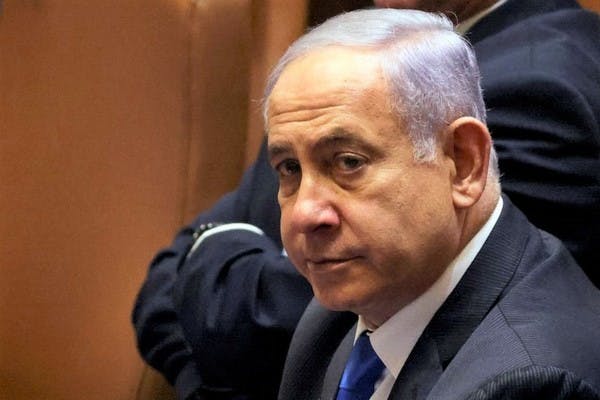Published: 23 June 2023
Last updated: 5 March 2024
SAM STEIN: Jewish advocates are staying in Palestinian villages to report settler violence and military activity to Israeli police.
A group of Israeli and Diaspora Jews are living in West Bank Palestinian villages to document violence and support shepherds and farmers.
The Center for Jewish Non-Violence’s (CJNV) Hineinu project brings Jewish activists to live in Palestinian villages in Masafer Yatta and engage in full-time solidarity activism.
Masafer Yatta is a region in the southern end of the West Bank that faces rampant settler violence from notorious settler outposts such as Havat Maon, Mitzpe Yair, and Havat Talia. Many residents of Masafer Yatta also face expulsion from an area the Israeli military has declared “Firing Zone 918.”
While on Hineinu, which is Hebrew for “we are here,” participants spend three months living in Masafer Yatta. According to CJNV, they learn Arabic and “accompany local residents while they are shepherding, farming, commuting, and engaging in a variety of activities in which they may face military or settler violence.”

Being on-site means they are well-placed to document settler violence or military activity, help file police reports, or pick up arrested Palestinians from the police station.
Palestinian activist Hamdan Balal said the presence of Hineinu protects and supports Palestinian life in Masafer Yatta.
“There are many fields that the shepherds couldn’t reach before Hineinu … but when [the Jewish activists] are there filming what the settlers do and protecting the shepherds, the shepherds feel safer, and they start to be able to access these fields.”
Balal said Hebrew-speaking Jewish activists were able to have an impact when Palestinians cannot.
“The police don’t care what Palestinians say, but when the people from Hineinu speak to them, it’s different. They can’t say ‘You’re liars.’ The activists have pictures and videos of when the settlers attacked.”
Hineinu is the first activist program to bring Israeli citizens to stay in the West Bank. Other programs have brought activists from overseas, some of them Jewish, but Hineinu is a specifically Jewish program to help Palestinians.
The breakthrough happened in 2020 when Covid meant other international activists could not travel to the West Bank.
CJNV co-director Oriel Eisner explained, “When Covid hit, we went to our partners and asked what we should do … and they said, ‘All the internationals are gone, so bring people in.’”

Hineinu began to fill a gap but has become integrated into the life of the small villages where it works. Hineinu participant Gaby Vides said when she first thought about joining the program and living in a Palestinian village it felt crazy.
But the experience of living among Palestinian people has humanised her hosts.
During the first two weeks of Vides’ time in Masafer Yatta, her host gave birth to a baby boy, and this newborn baby’s grandfather passed away. “You’re with people for really painful moments, but also really precious moments,” she said.
From the high of joining a dance party in one of the local villages to the low of contending with settler violence, Vides learned what it was to live as a Palestinian.
Another Hineinu participant, Devorah Klionsky, said the program was important both as a learning experience and because it demonstrated solidarity.
“I don’t learn well about things that are far away … and also – even if it’s futile – it’s important that there are people here doing this work and joining this resistance. Let it not be said that all Jews were complicit.”
She said documenting the rampant settler violence and military activity in the region was a constant challenge.
“It’s like whack-a-mole,” she said, referring to the game where players have to strike a constantly moving target.
Klionsky also reflected on the physical stress of life in Masafer Yatta. Just three months in the conditions Palestinians are forced to endure for their entire lives is enough to affect anyone’s mental health, she said.
RELATED STORIES
Israel's Christians horrified by hate crimes in Jerusalem (Al Monitor)
Verbal and physical attacks are rising against Christians and Christian sites in Jerusalem.
Israel soccer games may be moved from Jerusalem venue after racism toward Arab player (Times of Israel)
Association chief says “all option”’ will be considered after Mohammed Abu Fani is jeered, called “terrorist” during international match at Beitar Jerusalem’s home stadium.
Top photo: A Hineinu volunteer films a military encounter with a Palestinian villager (Emily Glick)




